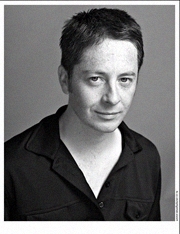Tutor HuntResources Creative Writing Resources
Money For Nothing; Joe Orton & Loot
published in City Life magazine, June 2001
Date : 11/02/2013
Author Information

Uploaded by : Steve
Uploaded on : 11/02/2013
Subject : Creative Writing
It's hard to separate the shy asthmatic Leicester schoolboy - who teachers complained couldn't string two words together - from the award winning, hedonistic playwright of 60's London. The product of an impoverished, loveless upbringing - father William was a timid ghost of a man who never played with his children, took them on holiday or even bought presents - John Kingsley Orton always knew he was destined for more than the grey working class grind his parents endured. The theatre provided a means of escape: at 18, he won a scholarship to study acting at RADA. It was here he met Kenneth Halliwell, seven years his senior. The two became friends and later lovers, and for fifteen years lived and often wrote together. They wore one another's clothes, and their wills each named the other as sole beneficiary. The only thing they didn't share was success.
"Halliwell was a frightening man", recalls Murray, "he used to sit in the corner and scowl. But Joe was charming and sweet; I never saw the other side of him. I heard what people said about him, and I saw the movie Prick up Your Ears, but that isn't the guy I know."
The first production of Loot, featuring Kenneth Williams as Inspector Truscott, fell foul of pressurised rewrites, petty infighting, irate audiences and the censor. The tour floundered and no London theatre would take the production. Orton's energy and reputation - in the ascendant after the success of Entertaining Mr Sloane - were severely dented but the show was thrown a lifeline by Manchester's Century Theatre (now Contact). Director Murray worked with Orton on rewrites, and reinstated scenes cut by the Lord Chamberlain. Under the watchful eye of the Police stationed in the stalls, the new production opened in Manchester on 11 April 1966. Second time around, Loot was a triumph, and went onto enjoy a successful London run, winning the Evening Standard award for best new play.
Now, thirty five years later, Murray has redirected the play with Royal Exchange favourite Derek Griffith as the sinister Inspector Truscott of the Yard. Irreverent, amoral and bizarre, Loot remains a tour-de-force of high farce and bad taste. Combining Wildean one-liners with a fiendishly honed plot - a pair of young male lovers rob a bank and hide the money in the coffin of one boy's mother - its a sustained satire on bereavement, authority, and British morality, just as relevant today as in 1966, believes Murray. "If Joe was around today, he'd be laughing - we're living in a completely amoral society. The police are still corrupt, the judiciary are appalling, and religion is crumbling. Nothing's changed really. It's bang up to date in terms of its targets."
'Sex is the only way to infuriate them', wrote Orton, 'much more fucking and they'll be screaming hysterics in next to no time.' His disregard for the guardians of public decency, anarchic wit and openly promiscuous lifestyle ("I'm an acquired taste", he once quipped, "there's a double entendre if there ever was one"), made him that rarest of creatures, a social and literary subversive. If The Smiths had held it together for one more album, Orton would have been a perfect cover star. Murray: "He wasn't politically correct, he didn't give a fuck. But he was very brave. He knew that all of us have this sexual maelstrom inside us - which we deny - and morality and religion try to make us sit on it. And he wanted to let it all out. I think he thought he'd go pop if he didn't."
On 9th of August 1967, Halliwell - overcome by feelings of inadequacy in the face of Orton's achievements, and spiralling ever deeper into depression - took a hammer and bludgeoned his lover to death, before finally committing suicide by overdose.
Murray: "People say 'what a tragedy', and of course it was, but I believe Joe had gone as far as he could with his plays. It's like Keats - you do as much as you can and then burn yourself out." Orton's legacy may be small - three full length plays, four one acts, and an unproduced film scri pt for The Beatles - but the influence of his prankster spirit cannot be underestimated; there's been nobody like him since. "He said that once he'd been in prison, he found it impossible to take anything seriously afterwards", says Murray. "Sometimes we forget how important comedy is."
This resource was uploaded by: Steve
